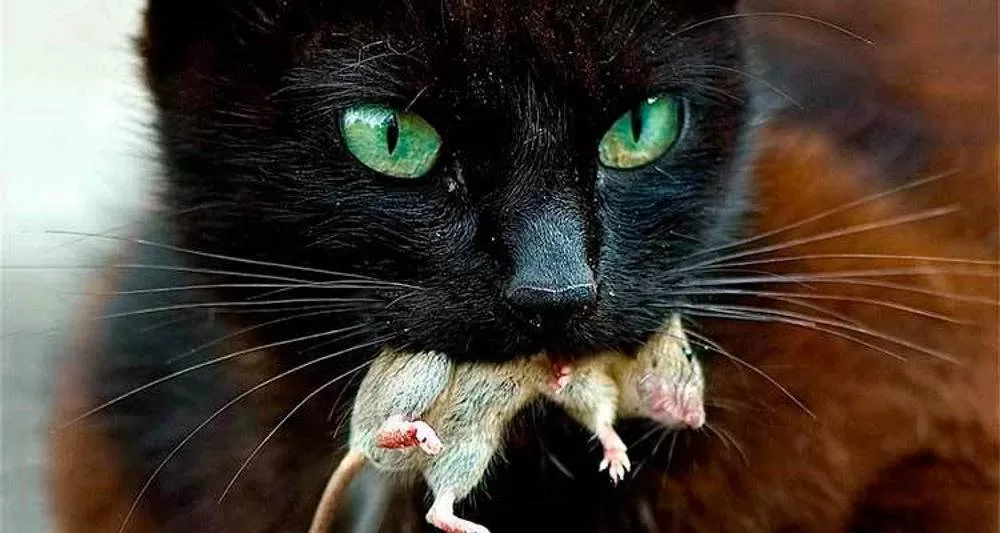Introduction
The age-old question of whether cats should be allowed to eat mice has been a topic of debate among cat owners and animal enthusiasts for centuries. On one hand, cats are natural hunters and consuming mice is a part of their instinctual behavior. On the other hand, there are potential health risks associated with consuming mice, as well as ethical considerations and environmental impacts to consider. In this article, we will explore the various aspects of this debate and provide a comprehensive analysis of the issue.
The natural instinct of cats to hunt and kill prey
Cats have a long evolutionary history as hunters, dating back thousands of years. Their ancestors were wild cats that relied on hunting for survival. This instinctual behavior has been passed down through generations, and even domesticated cats still possess the natural drive to hunt and kill prey.
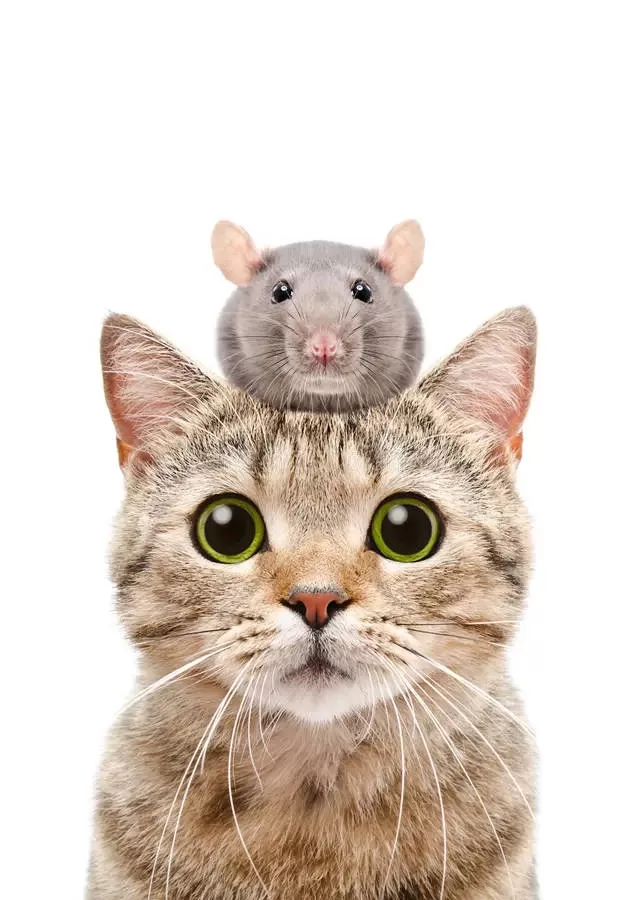
Hunting plays a crucial role in a cat’s behavior and development. It provides mental and physical stimulation, allowing cats to exercise their natural instincts and keep their hunting skills sharp. Hunting also helps cats release pent-up energy and reduce stress. In the wild, cats would spend a significant amount of time hunting for food, and this behavior is deeply ingrained in their DNA.
The potential health risks associated with consuming mice
While hunting and consuming mice may be a natural behavior for cats, there are potential health risks associated with it. Mice can carry various diseases, including parasites, bacteria, and viruses, which can be transmitted to cats through consumption. These diseases can range from mild to severe, and in some cases, they can be fatal.
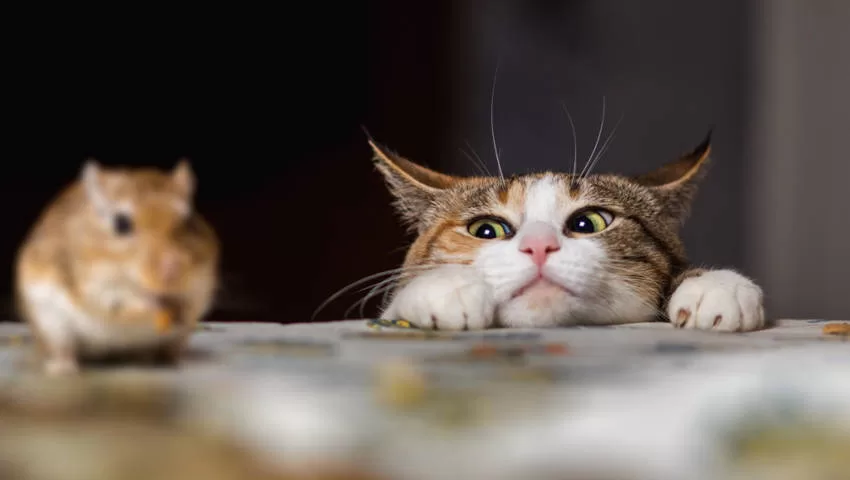
Additionally, there is a danger of consuming poisoned mice. Many people use rodenticides to control mouse populations, and if a cat consumes a poisoned mouse, it can suffer from poisoning as well. These poisons can have serious health effects on cats, including organ damage and even death.
The nutritional benefits of mice for cats
Despite the potential health risks, mice do provide certain nutritional benefits for cats. Mice are high in protein, which is an essential nutrient for cats. Protein is necessary for muscle development, tissue repair, and overall growth and maintenance. Mice also contain other important nutrients, such as vitamins and minerals, which contribute to a cat’s overall health and well-being.
In the wild, cats would consume the entire mouse, including the bones and organs, which provide additional nutrients. This natural diet helps cats meet their nutritional needs and ensures they receive a balanced diet.
The impact of domestication on a cat’s hunting behavior
The process of domestication has had an impact on a cat’s hunting behavior. Domesticated cats often live indoors and are provided with regular meals, which can reduce their need to hunt for food. As a result, some domesticated cats may exhibit less intense hunting behavior compared to their wild counterparts.
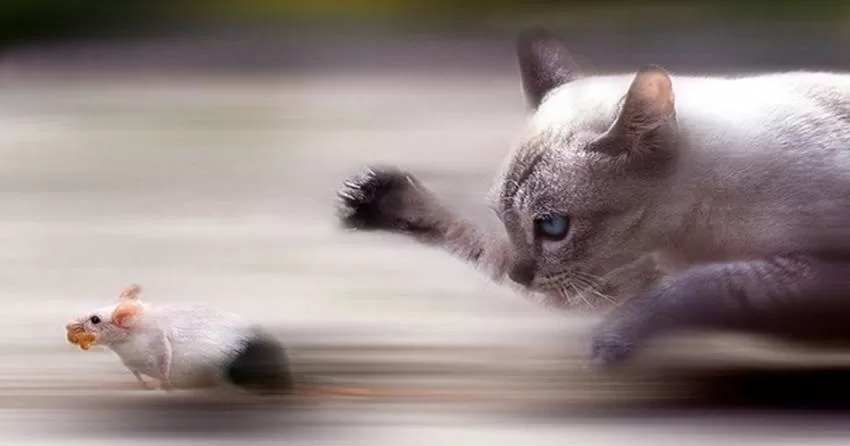
However, it is important to note that even indoor cats still possess the instinct to hunt. They may exhibit hunting behaviors towards toys or other small objects, and some may even attempt to catch and kill insects or small animals that enter the home. It is crucial for cat owners to provide alternative outlets for a cat’s hunting behavior to ensure their mental and physical well-being.
The ethical considerations of allowing cats to hunt and kill mice
The debate over whether it is ethical to allow cats to hunt and kill mice is a complex one. On one hand, hunting is a natural behavior for cats, and preventing them from engaging in this behavior may be seen as suppressing their instincts. Allowing cats to hunt can provide them with mental and physical stimulation and contribute to their overall well-being.
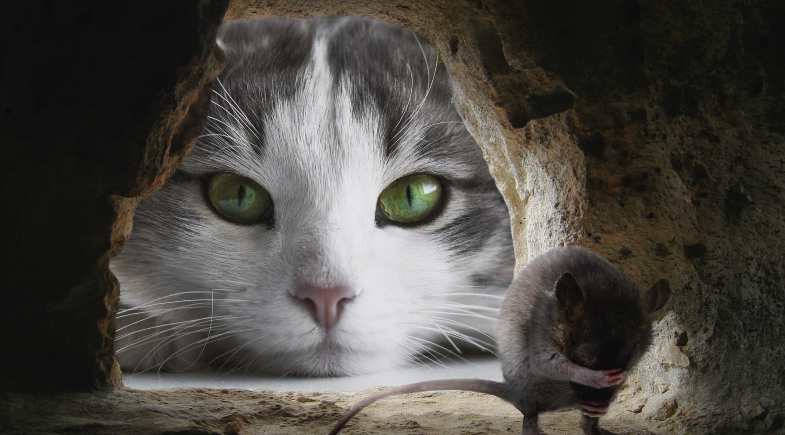
On the other hand, there are ethical concerns regarding the well-being of the mice. Some argue that it is cruel to allow cats to kill mice for sport, as it causes unnecessary suffering. Additionally, there is a responsibility on the part of cat owners to ensure the safety and well-being of their pets and the environment. This includes monitoring their hunting behavior and taking steps to prevent harm to other animals.
The impact of mice on the environment and ecosystem
Mice play an important role in the ecosystem. They are prey for many other animals, including birds of prey, snakes, and other small mammals. Mice also contribute to the dispersal of seeds and the control of insect populations. A decline in the mouse population can have ripple effects throughout the ecosystem, potentially disrupting the balance of the food chain.
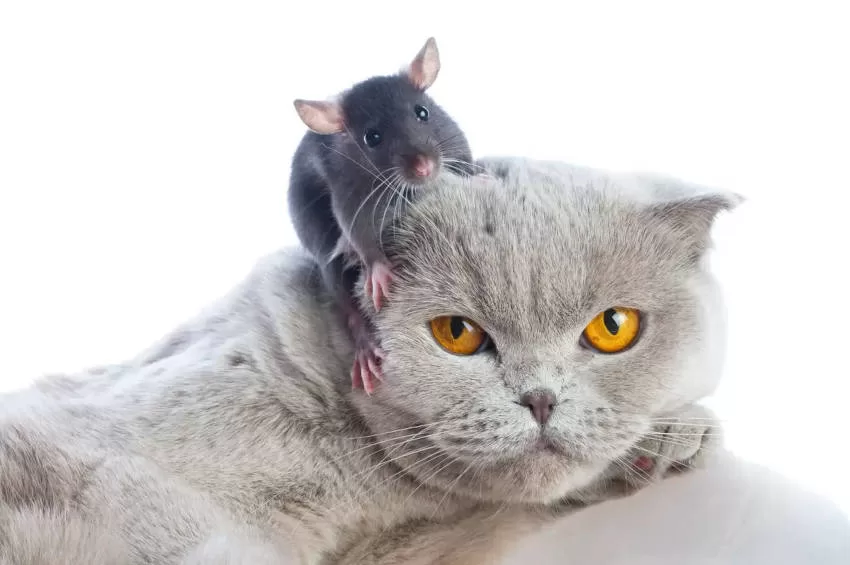
However, mice can also be considered pests, especially when they invade homes or damage crops. In these cases, it may be necessary to control the mouse population to prevent damage and disease transmission. Finding a balance between the ecological role of mice and the need for control is crucial for maintaining a healthy environment.
The importance of monitoring a cat’s mouse consumption
If a cat is allowed to hunt and consume mice, it is important for cat owners to monitor their hunting behavior and mouse consumption. This includes observing any signs of illness or changes in behavior that may indicate the cat has contracted a disease from a mouse. Regular veterinary check-ups are also essential to ensure the cat’s overall health and well-being.
Overconsumption of mice can also be a concern. While mice provide certain nutritional benefits, they should not be the sole source of a cat’s diet. A balanced and complete cat food that meets all of their nutritional needs should be the foundation of their diet. Mice can be offered as an occasional treat or supplement, but it is important to ensure that the cat’s overall diet is balanced and appropriate for their specific needs.
Alternative food options for cats that satisfy their hunting instincts
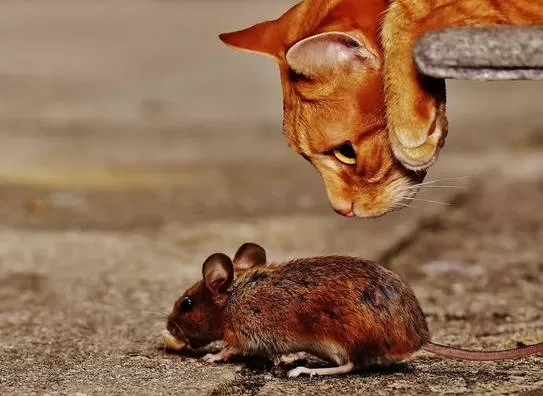
For cat owners who are concerned about the potential health risks or ethical considerations of allowing their cats to hunt and consume mice, there are alternative food options available that can satisfy a cat’s hunting instincts. These options include interactive feeding toys, puzzle feeders, and food dispensing toys that require the cat to “hunt” for their food.
These feeding methods provide mental and physical stimulation for cats, allowing them to engage in their natural hunting behavior without the risks associated with consuming live prey. Additionally, there are commercially available cat foods that are designed to mimic the texture and taste of prey, providing a more natural feeding experience for cats.
Conclusion
In conclusion, the debate over whether cats should be allowed to eat mice is a complex one. While hunting and consuming mice is a natural behavior for cats, there are potential health risks, ethical considerations, and environmental impacts to consider. Finding a balance between a cat’s natural instincts and their health and safety is crucial.
Responsible pet ownership includes monitoring a cat’s hunting behavior and mouse consumption, providing alternative outlets for their hunting instincts, and ensuring their overall well-being. Additionally, environmental stewardship involves considering the impact of mice on the ecosystem and finding ways to control their population without causing harm.
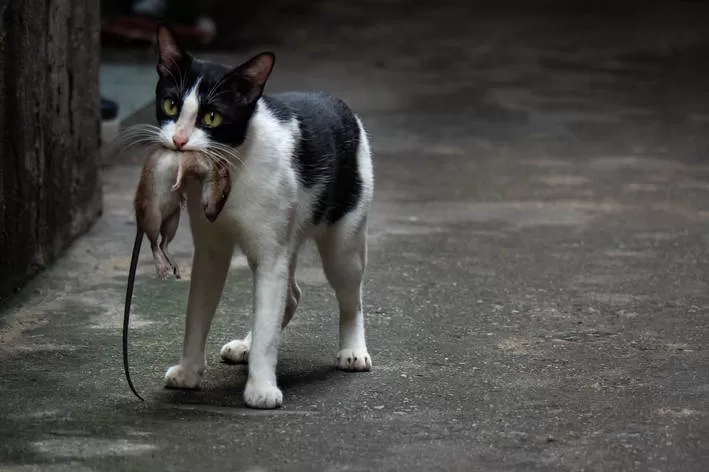
Ultimately, the decision of whether to allow cats to hunt and consume mice is a personal one that should be based on the individual cat’s needs and circumstances. By considering all of these factors and making informed choices, cat owners can ensure the health and happiness of their pets while also being mindful of the environment.
If you’re interested in learning more about cats and their unique characteristics, you might enjoy reading the article “The Mystery of Cats’ Heartbeats: A Beat That Energizes Rest” from the Book of Cats website. This fascinating piece delves into the intriguing topic of how cats’ heartbeats differ from those of other animals and how this affects their energy levels and rest patterns. Discover the secrets behind your feline friend’s rhythmic heartbeat by clicking here.
External Links:
https://www.petsradar.com/advice/do-cats-eat-mice

